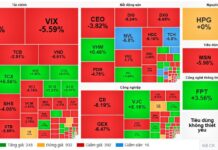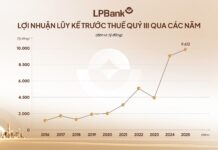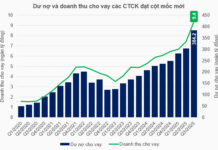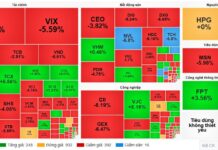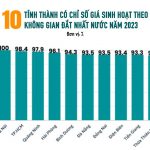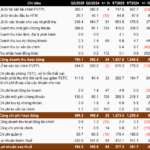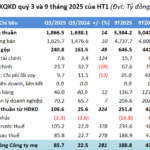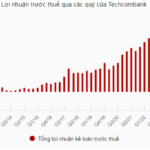The latest report by Numbeo.com, a website that provides statistical data on the cost of living in various countries and cities worldwide through surveys, reveals that the average house price in Vietnam in 2024 is almost 24 times higher than the average annual household income. Numerous studies also indicate that over the years, the growth rate of housing prices in Vietnam has been significantly higher than that of residents’ income.
According to PropertyGuru Vietnam, the average asking prices for different types of housing in Hanoi are as follows: commercial houses, 22.8 billion VND/unit; villas, 17.8 billion VND/unit; detached houses, 6.3 billion VND/unit; and apartments, 4.1 billion VND/unit. In contrast, the estimated average income of workers in Hanoi in 2023 was 135 million VND/year.
This means that to own a commercial house in Hanoi, people would need to work without spending any money for 169 years. For a detached house, it would take 132 years, and for an apartment, 30 years.
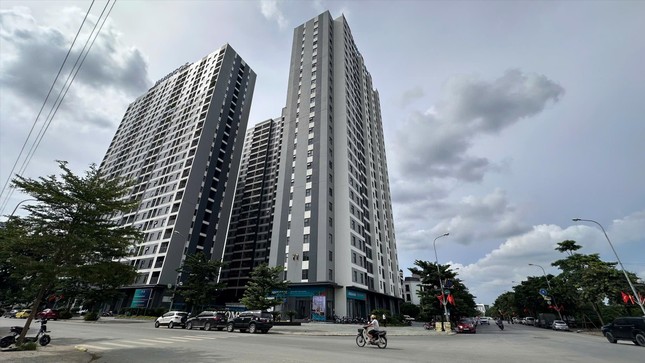
The dream of owning a home in Hanoi is becoming increasingly unattainable for young families. Photo: Nhu Y
In the first half of 2024, all housing segments remained hot in the real estate market. The apartment segment, in particular, witnessed a surge in interest, leading to a significant increase in secondary market prices.
“Compared to the same period last year, secondary market apartment prices have increased by an average of 25%, with Class B and Class C segments recording increases of 27% and 29%, respectively,” said Do Thi Thu Hang, Senior Director of Consulting and Research at Savills Hanoi. She cautioned that homeownership would become even more challenging if the income-price gap continues to widen.
Young couples are postponing having children due to high housing prices
The Vietnam Real Estate Brokers Association’s recent study reveals that more and more young people are delaying marriage and parenthood due to skyrocketing housing prices. This reluctance stems from financial concerns, as the worry of making ends meet is heavily influenced by housing costs. Pham Mien, Deputy Director of the Institute for Real Estate Research and Evaluation in Vietnam, believes that as housing prices soar, so do rental prices, putting pressure on citizens’ living expenses.
Many young adults feel they need to buy a house before getting married or starting a family, but with the current surge in real estate prices, they must work tirelessly to achieve this goal, often neglecting the ideal timing for family planning. The monthly rent and living expenses consume most of their income, causing many young couples to opt for having only one child or postponing parenthood altogether.
In Ho Chi Minh City, where housing prices are the highest in the country, the average age of marriage is also the highest, and the birth rate is the lowest in Vietnam. During 2016-2018, when housing prices in Ho Chi Minh City continuously soared to new heights, the city also led the nation in the spatial cost-of-living index (SCOLI).
Since 2019, while Ho Chi Minh City’s housing prices have slowed down, Hanoi’s prices have been on a steep upward trajectory. Consequently, Hanoi has become the most expensive city in Vietnam. Currently, the apartment price trend in Hanoi seems to be following the path that Ho Chi Minh City’s market took five years ago.
Hanoi’s average price per square meter has reached 80 million VND, approaching the prices recorded in Ho Chi Minh City. Consequently, the average age of marriage in Hanoi is rising, accompanied by a declining birth rate.
According to experts, the high housing prices are causing young people to delay marriage and parenthood, leading to a potential shortage of young workers and a decrease in labor productivity. This situation could create a burden on social security as Vietnam is expected to have over 30 million elderly people, comprising approximately 25% of the population, in the next three decades.

